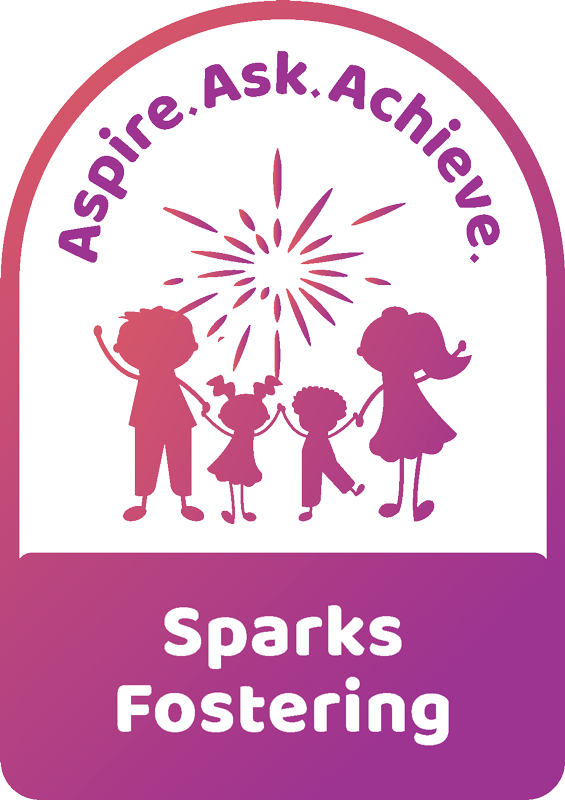Eating Disorders
Anorexia
Anorexia is an eating disorder and serious mental health condition.
People who have anorexia try to keep their weight as low as possible by not eating enough food or exercising too much, or both. This can make them very ill because they start to starve.
They often have a distorted image of their bodies, thinking they’re fat even when they’re underweight.
Men and women of any age can get anorexia, but it’s most common in young women and typically starts in the mid-teens.
The NHS website has useful information about eating disorders. The information relevant to fostering is included here.

Signs and symptoms of anorexia
Signs and symptoms of anorexia include:
- For those under 18, their weight and height being lower than expected for their age.
- For adults, having an unusually low body mass index (BMI).
- Missing meals, eating very little or avoiding eating any foods considered to be fattening.
- Believing they’re fat when they’re a healthy weight or underweight.
- Taking medicine to reduce hunger (appetite suppressants).
- Periods stopping (in women who have not reached menopause) or not starting (in younger women and girls).
- Physical problems, such as feeling lightheaded or dizzy, hair loss or dry skin.
- Some people with anorexia may also make themselves sick, do an extreme amount of exercise, or use laxatives or diuretics to try to stop themselves gaining weight from any food they do eat.
Health risks of anorexia
Long-term anorexia can lead to severe health problems associated with not getting the right nutrients (malnutrition). But these will usually start to improve once eating habits return to normal.
Possible complications include:
- Problems with muscles and bones – including feeling tired and weak, osteoporosis, and problems with physical development in children and young adults.
- Problems with the heart and blood vessels – including poor circulation, an irregular heartbeat, low blood pressure, heart valve disease, heart failure, and swelling in the feet, hands or face (oedema).
- Problems with the brain and nerves – including fits (seizures), and difficulties with concentration and memory.
- Kidney or bowel problems.
- Having a weakened immune system or anaemia.
- Anorexia can also be a risk to life. It’s one of the leading causes of deaths related to mental health problems. Deaths from anorexia may be due to physical complications or suicide.
Binge eating disorder
Binge eating disorder involves regularly eating a lot of food over a short period of time.
Binges are often planned in advance, usually done alone, and may include ‘special’ binge foods. Guilt or shame may follow a binge.
Men and women of any age can get binge eating disorder, but it usually starts in the late teens or early 20s.
Symptoms of binge eating disorder
The main symptom of binge eating disorder is eating a lot of food in a short time and not being able to stop when full. Other symptoms include:
- Eating when not hungry.
- Eating very fast during a binge.
- Eating alone or secretly.
- Feeling depressed, guilty, ashamed or disgusted after binge eating.
Warning signs of binge eating disorder in someone else
Someone you care about may have an eating disorder if they:
- Eat a lot of food, very quickly.
- Try to hide how much they’re eating.
- Store up supplies of food.
- Put on weight (but this does not happen to everyone with binge eating disorder).
Bulimia
Bulimia is an eating disorder and mental health condition.
People who have bulimia go through periods where they eat a lot of food in a very short amount of time (binge eating) and then make themselves sick, use laxatives or do excessive exercise, or a combination of these, to try to stop themselves gaining weight.
Anyone can get bulimia, but it is more common in young people aged 13 to 17.
Symptoms of bulimia
Symptoms of bulimia include:
- Eating very large amounts of food in a short time, often in an out-of-control way – this is called binge eating.
- Inducing vomiting, using laxatives, or doing an extreme amount of exercise after a binge to avoid putting on weight – this is called purging.
- Fear of putting on weight.
- Being very critical about own weight and body shape.
- Mood changes – for example, feeling very tense or anxious.
These symptoms may not be easy to spot in someone else because bulimia can make people behave very secretively.
Binge-purge cycle
Bulimia is often a vicious cycle of binging and purging, triggered by things such as hunger, sadness or stress.
Someone who has bulimia may follow very strict rules about dieting, eating or exercising. Failing to keep to these then leads to periods of excessive eating and loss of control (binge eating), after which there are feelings of guilt or shame.
There is then a purge to get rid of the calories, leading to feeling hungry, and and the cycle continues.
Health risks of bulimia
Bulimia can eventually lead to physical problems associated with not getting the right nutrients, vomiting a lot, or overusing laxatives.
Possible complications include:
- Feeling tired and weak.
- Dental problems – stomach acid from persistent vomiting can damage tooth enamel.
- Bad breath, a sore throat, or even tears in the lining of the throat – also caused by stomach acid.
- Irregular or absent periods.
- Dry skin and hair.
- Brittle fingernails.
- Swollen glands.
- Fits and muscle spasms.
- Heart, kidney or bowel problems, including permanent constipation.
- Bone problems – such as osteoporosis.
Causes of eating disorders
We do not know exactly what causes anorexia and other eating disorders. The likelihood of getting an eating disorder is increased if:
- The family has a history of eating disorders, depression, or alcohol or drug addiction.
- There has been criticism of eating habits, body shape or weight.
- There is excessive concern with being slim, particularly if there is also pressure from society or hobbies/interests – for example, ballet dancers, jockeys, models or athletes.
- Anxiety, low self-esteem, an obsessive personality or being a perfectionist.
- Having been sexually abused.
Supporting children with eating disorders
If a child has been diagnosed with an eating disorder, here’s what you can do to help.
Talk to them about it
If the child becomes withdrawn, touchy or moody, it might make it difficult to talk to them. It may be even more difficult if they cannot accept they have a problem.
But talking about their condition is needed for their recovery, so keep trying.
They might come across as angry, even if they’re really feeling scared or insecure.
It might be difficult for them to talk about their feelings, so be patient and listen to what they’re trying to say.

It can help if you:
- Stay calm and prepare what you’re going to say to them – do not blame or judge them, just focus on how they’re feeling.
- Avoid talking about their appearance, even if you’re trying to say something nice.
- Try to use sentences starting with “I”, like, “I’m worried because you do not seem happy”, rather than sentences beginning with “you”.
- Avoid discussing people’s diets or weight problems.
- Try not to feel hurt if they do not open up straight away.
- Do not be upset if they are being secretive, because this is part of their illness, not their relationship with you.
Health risks of anorexia
Mealtimes can be particularly difficult. You may find the following advice helpful:
- If the child is in treatment, ask their treatment team for advice on how to cope with mealtimes.
- Try to make meal plans with the child that you both agree to.
- Agree with family, friends and other significant people that none of you will talk about portion sizes, calories or anything else about the meal.
- Avoid eating low-calorie or diet foods in front of them or having them in the house.
- Try to keep things light-hearted and positive throughout the meal, even if you do not feel that way on the inside.
- If the child tries to get too involved in cooking the meal as a way of controlling it, gently ask them to set the table or wash up instead.
- Try not to focus too much on them during mealtimes – enjoy your own meal and try to make conversation.
- A family activity after the meal, such as a game or watching TV, can help distract them from wanting to purge or overexercise.
- Do not worry if a meal goes badly, and just move on.
Support for your child
If the child is being treated for an eating disorder, their treatment team will play a big part in their recovery.
But do not underestimate the importance of your affection and support.
It may help to:
- Learn as much as possible about eating disorders, so you understand what you’re dealing with.
- Keep telling them that you love them and will always be there for them.
- Make them aware of the professional help available.
- Suggest activities they could do that do not involve food, such as hobbies and spending time with friends.
- Ask them what you can do to help.
- Try to be honest about your own feelings, as this will encourage them to do the same.
- Be a good role model by eating a balanced diet and doing a healthy amount of exercise.
- Try to build their confidence, for example, praise them for being thoughtful or congratulate them on something they’ve done.
Getting help for eating disorders
Getting help and support as soon as possible gives the best chance of recovering from eating disorders.
An GP should be seen as soon as possible. They will ask questions about eating habits and thoughts and feelings and will check overall health and weight. The GP may request some blood tests to make sure the weight loss is not caused by something else.
If the GP suspects there is an eating disorder, they should make a referral to an eating disorder specialist or team of specialists.
You can also talk in confidence to an adviser from eating disorders charity Beat, by calling its adult helpline on 0808 801 0677 or youth helpline on 0808 801 0711.
Get support for yourself
Ask a GP or a health professional in your child’s treatment team for advice on how to help at home.
It’s important the whole family understands the situation and has support.
The following organisations offer advice online:
- Anorexia and Bulimia Care: advice for family and friends.
- Beat: supporting someone.
- Family Lives: eating disorder help.
- Young Minds: help for parents.
You can also ask your GP about support groups for parents caring for someone with an eating disorder.







